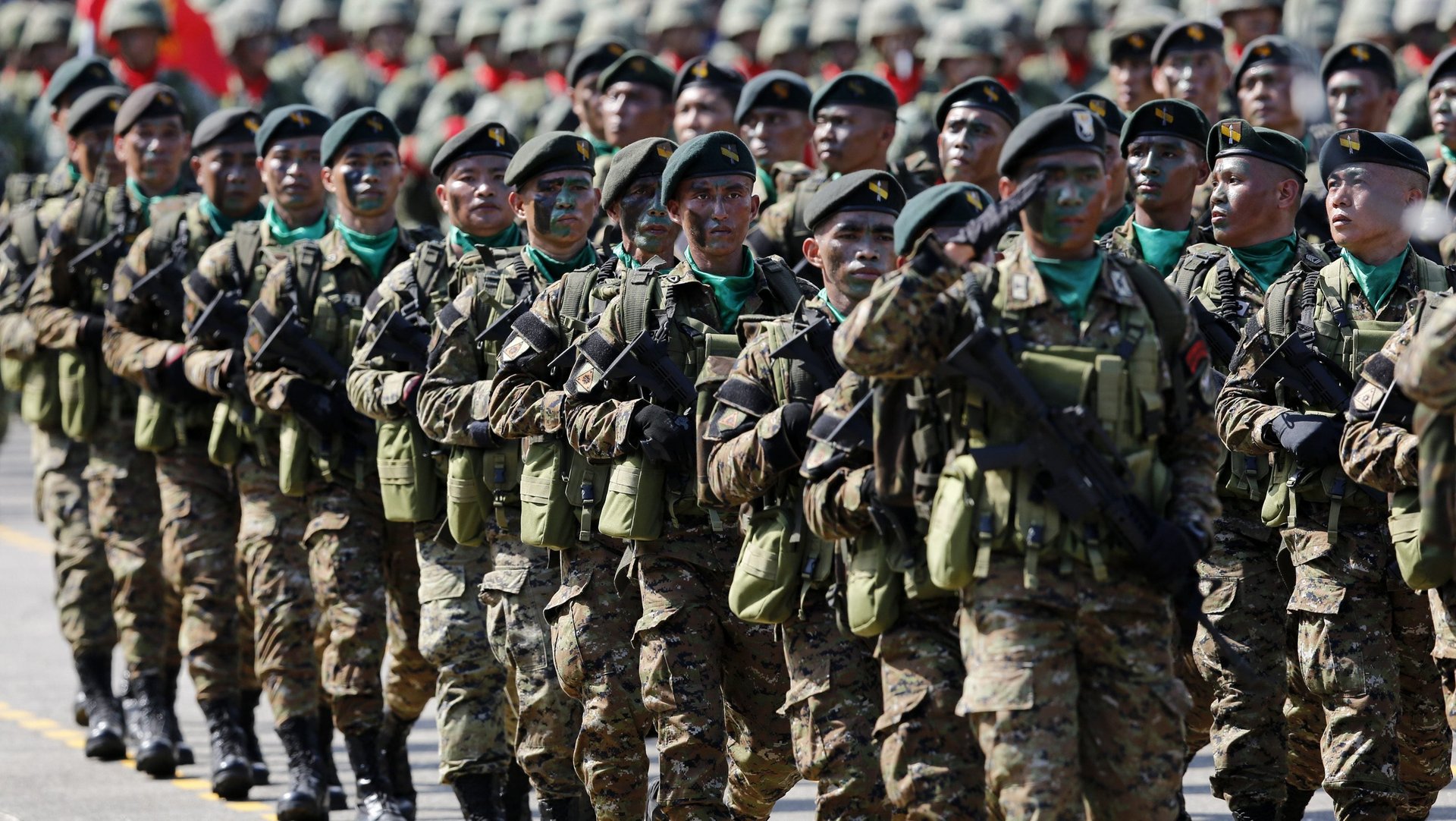Rodrigo Duterte will fix his murderous war on drugs by having soldiers do the killing instead of police
Philippine president Rodrigo Duterte does not take kindly to being embarrassed—which he was after it came to light this month that members of his anti-drug police brutally murdered a South Korean businessman last October and tried to extort money from his wife. Duterte had to apologize on Jan. 26 for their behavior in public, and even send a representative to Seoul to do the same in person.


Philippine president Rodrigo Duterte does not take kindly to being embarrassed—which he was after it came to light this month that members of his anti-drug police brutally murdered a South Korean businessman last October and tried to extort money from his wife. Duterte had to apologize on Jan. 26 for their behavior in public, and even send a representative to Seoul to do the same in person.
Worse, the incident forced Duterte to admit that many of the police officers tasked with hunting down drug suspects were corrupt. Compounding matters, shortly thereafter Amnesty International reported that his war on drugs, which has claimed some 7,000 lives in seven months, had created “an economy of murder,” with police and vigilantes paid per dead body.
Angry, Duterte on Jan. 30 ordered the police to pause and overhaul their anti-drug operations: “Cleanse your ranks. Review their cases. Give me a list of who the scalawags are.”
Now he’s got a new plan. Duterte announced today (Feb. 2) that he would issue an executive order for the military to carry out the war against drugs—to fill the void left by the police.
Human-rights groups were quick to condemn the move. Phelim Kine, deputy director in Asia for Human Rights Watch, wrote on the organization’s website:
Using military personnel for civilian policing anywhere heightens the risk of unnecessary or excessive force and inappropriate military tactics. But there is also a deeply rooted culture of impunity for military abuses in the Philippines.
Senator Leila de Lima, one of Duterte’s staunchest adversaries, also criticized the move and the president’s “single-minded obsession” with drugs. The real problem, she said, was not the police or military per se, “but the monstrous policy hatched in the bowels” of Davao City, where as mayor Duterte began his war on drugs before extending it nationwide as president. That policy, she added, “gave rise to more than a thousand dead in that city and over 7,000 in the whole country.”
Duterte did show some restraint today. He ruled out declaring martial law for now.